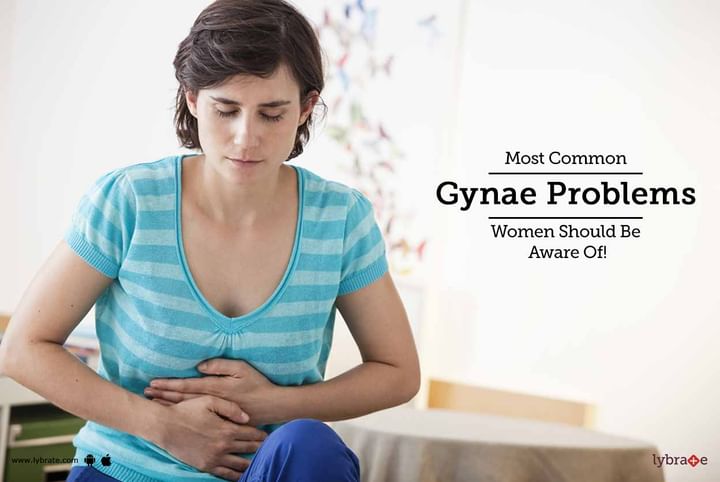Get the App
For Doctors
Login/Sign-up
Last Updated: Oct 23, 2019
BookMark
Report
Most Common Gynae Problems Women Should Be Aware Of!
Dr. Smita VatsGynaecologist • 25 Years Exp.MBBS, DNB (Obstetrics & Gynecology), Diploma In Laproscopic Surgery ( Germany), Certified in Laparoscopy & Hysteroscopy, FMAS, FICMCH
Almost every woman suffers from a gynecological problem at some point or the other. In most cases these disorders are mild and easily treatable, but some gynecological problems can have serious implications and affect their fertility and quality of life.
Here are the five most common gynecological problems faced by women.
- Dysmenorrhoea: Abdominal cramps and back aches are common side effects of menstruation but some women can suffer from excruciating pain during their menstrual cycles. This is known as Dysmenorrhoea. This is caused by a decreased supply of oxygen to the uterus due to strong contractions in the uterus. These cramps become less painful as a woman ages and in most cases is resolved by childbirth. Symptoms of this disorder include excruciating abdominal pain, pain in the lower back, inner thighs and hips, nausea and loose stools.
- Ovarian Cysts: Ovarian cysts can be big or small and many women live with cysts without being aware of it. These cysts can be described as fluid filled sac like structures that develop around and on the ovary which vary in terms of size and type. Ovarian cysts may or may not be tumors. Cysts can be a result of the growth of a follicle or the breaking down of tissue within the ovaries. In most cases, these cysts dissolve on their own but they should be monitored carefully.
- Endometriosis: This is a condition where the uterine tissue grows outside the walls of the uterus. This occurs commonly on the ovaries and fallopian tubes but can also develop on the cervix, bladder, bowel or rectum. The exact cause of endometriosis is unknown. Some theories suggest that it is triggered by retrograde menstruation or the backward flow of menstrual blood into the fallopian tubes. The symptoms of this condition include abdominal cramps, pain during intercourse and bowel movements, bleeding between periods and digestive problems.
- Polycystic Ovarian Disease (PCOD): PCOD is a condition where the ovaries produce follicles that develop into cysts instead of eggs. This leads to a lack of viable eggs and thus affects a woman’s fertility. This can also cause mood swings and depression. PCOD is triggered by hormone changes and exhibits symptoms such as irregular periods, acne, hair loss and breathing problems while sleeping.
- Urinary Tract Infection (UTI): UTIs are usually caused by bacterial infections and can be triggered by pregnancy, frequent intercourse, diabetes and as a side effect of certain types of medication. The symptoms of this condition include stinging and burning sensations while urinating, abdominal cramps, painful intercourse and an increased urge to urinate frequently.
Women who face any of the above problems should meet a Gynaecologist for proper diagnosis and guidance regarding treatment. Some of these may be treated by Lifestyle modifications while medical intervention & appropriate treatment may be required in others. In case you have a concern or query you can always consult an expert & get answers to your questions!



+1.svg)
